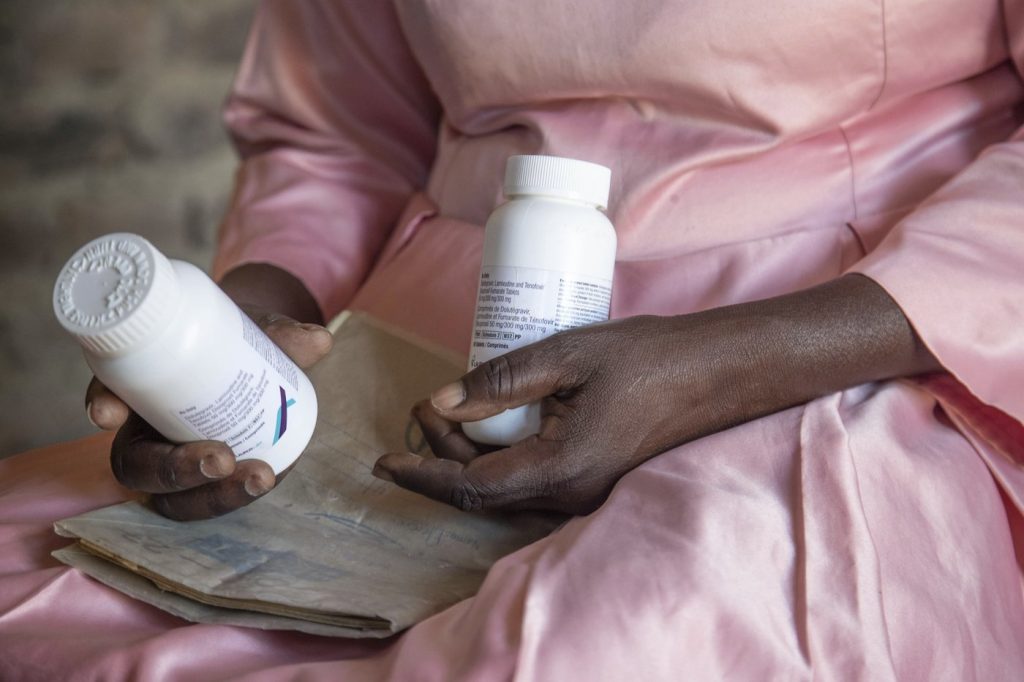HARARE, Zimbabwe (AP) – Florence Makumene clutched a plastic container filled with HIV medication while contemplating a grim reality: this might be her final supply. Concerns are rising about a potential regression to an era decades past, when millions across sub-Saharan Africa perished due to AIDS. In her youth, Makumene witnessed the tragic losses of close family and friends who were diagnosed with HIV, which was then considered a death sentence. However, upon testing positive in 2016, she received lifesaving treatment through a community group funded by the U.S. President’s Emergency Plan for AIDS Relief (PEPFAR).
“People around me, including my own children, had written me off and were preparing to bury me, but I bounced back stronger,” said the 53-year-old Makumene. Since its inception in 2003, PEPFAR has been credited with saving over 26 million lives globally and altering the trajectory of AIDS treatment, particularly in Africa. However, a recent 90-day freeze on foreign aid, ordered by U.S. President Donald Trump, has severely disrupted one of the most effective health responses to HIV/AIDS. Trump’s administration promised waivers to allow continued access to critical medication, but legal challenges have emerged to lift the freeze.
In Africa, the fallout is immediate: thousands of U.S.-funded health workers have been let go, and numerous clinics have shuttered, obstructing access to vital HIV testing and treatment. Simon Bwanya, from the Zimbabwe National Network of People Living with HIV, stated, “People are finding doors closed. They are desperate.” The successful global efforts to combat AIDS have resulted in a 69% reduction in AIDS-related deaths since the peak in 2004 and a 60% decrease in new HIV infections since 1995, according to the United Nations AIDS program.
Experts attribute much of this progress to PEPFAR, initiated by Republican President George W. Bush, emphasizing its critical role in sub-Saharan Africa—the most affected region. Professor Francois Venter from the University of the Witwatersrand in Johannesburg remarked, “PEPFAR is the most efficient deployment of health resources I have seen. I challenge anyone to tell me how we could have used the money better.” The program has significantly enhanced medication accessibility for millions, yet the current aid freeze jeopardizes patients’ continued access to life-saving drugs.
Makumene’s support organization has been inactive for weeks, mirroring the state of most PEPFAR-funded NGOs across Africa as they await resolution from Washington. “We are like orphans; we have no one to turn to,” she expressed, fearing a return to an age where being HIV positive meant certain death. With approximately 20 million individuals worldwide relying on antiretroviral medications provided through PEPFAR, halting these treatments could spark a resurgence of HIV and drug-resistant strains. Venter cautioned, “HIV is a simple disease; you stop your ARVs, you get AIDS.”
The United Nations AIDS program Executive Director Winnie Byanyima voiced concern over the implications the funding freeze has on public health in Africa, indicating it might lead to increased AIDS cases and has incited widespread panic. PEPFAR not only funds NGOs but also directly supports countries’ public health systems by subsidizing thousands of staff involved in national HIV initiatives.
In South Africa, for example, PEPFAR finances 15,000 health specialists in government facilities. Although they represent only 5% of the overall workforce, these individuals are essential for providing ARVs, counseling, and reaching underserved communities. Sibongile Tshabalala, chair of the Treatment Action Campaign, warned that “critical health care infrastructure is being dismantled, clinics forced to close, frontline workers without support, all while lives hang in the balance.”
As countries like Kenya and Lesotho grapple with staffing crisis, with tens of thousands of health workers facing layoffs, the urgency to preserve health services is paramount. The government of South Africa is considering measures to retain health workers, while Lesotho’s Health Ministry has called on medical students to fill gaps left by the aid suspension.
Following the thaw of the foreign aid freeze, U.S. Secretary of State Marco Rubio announced waivers intended to maintain lifelines for vital treatment. However, advocacy groups criticized the limitations within these waivers, noting that they disproportionately restrict access to high-risk groups, including gay men and sex workers, for pre-exposure prophylaxis (PrEP). Dr. Kebby Musokotwane from Zambia's National AIDS Council warned, “The fight against HIV is not over yet,” emphasizing the ongoing need for effective solutions and the critical importance of sustaining progress in combating HIV/AIDS.










